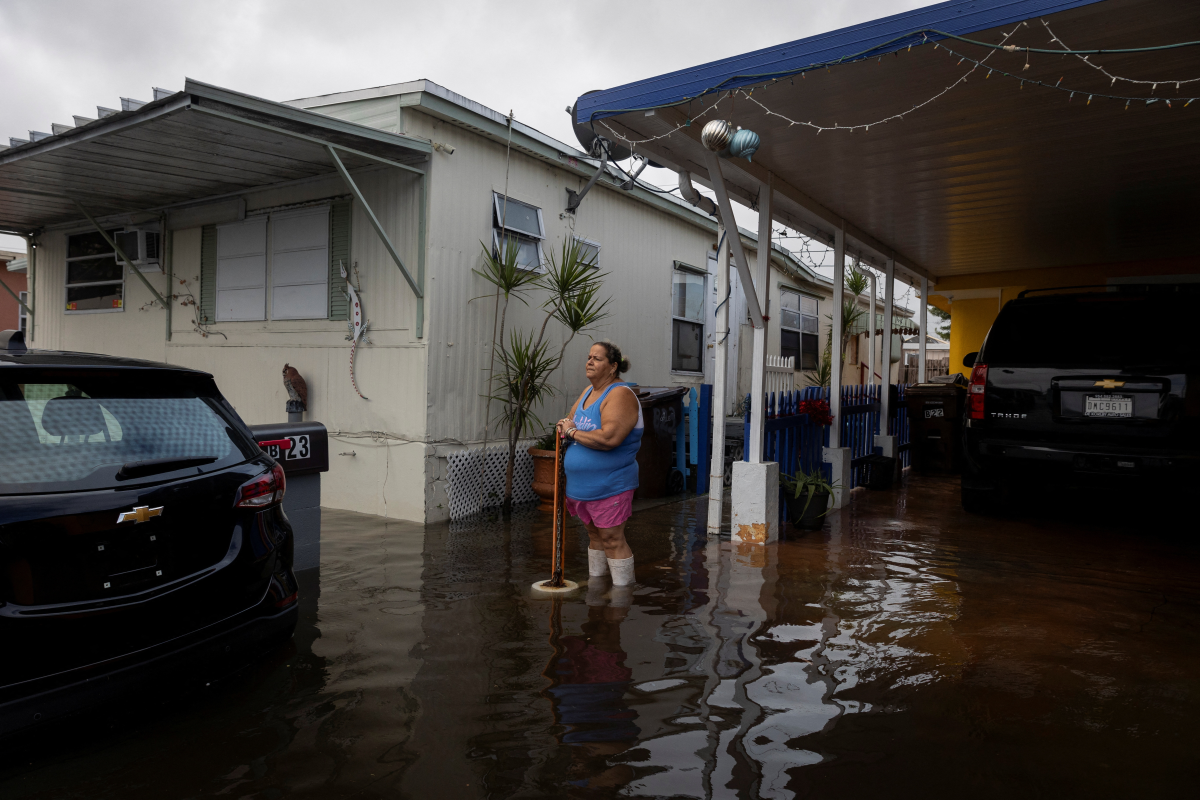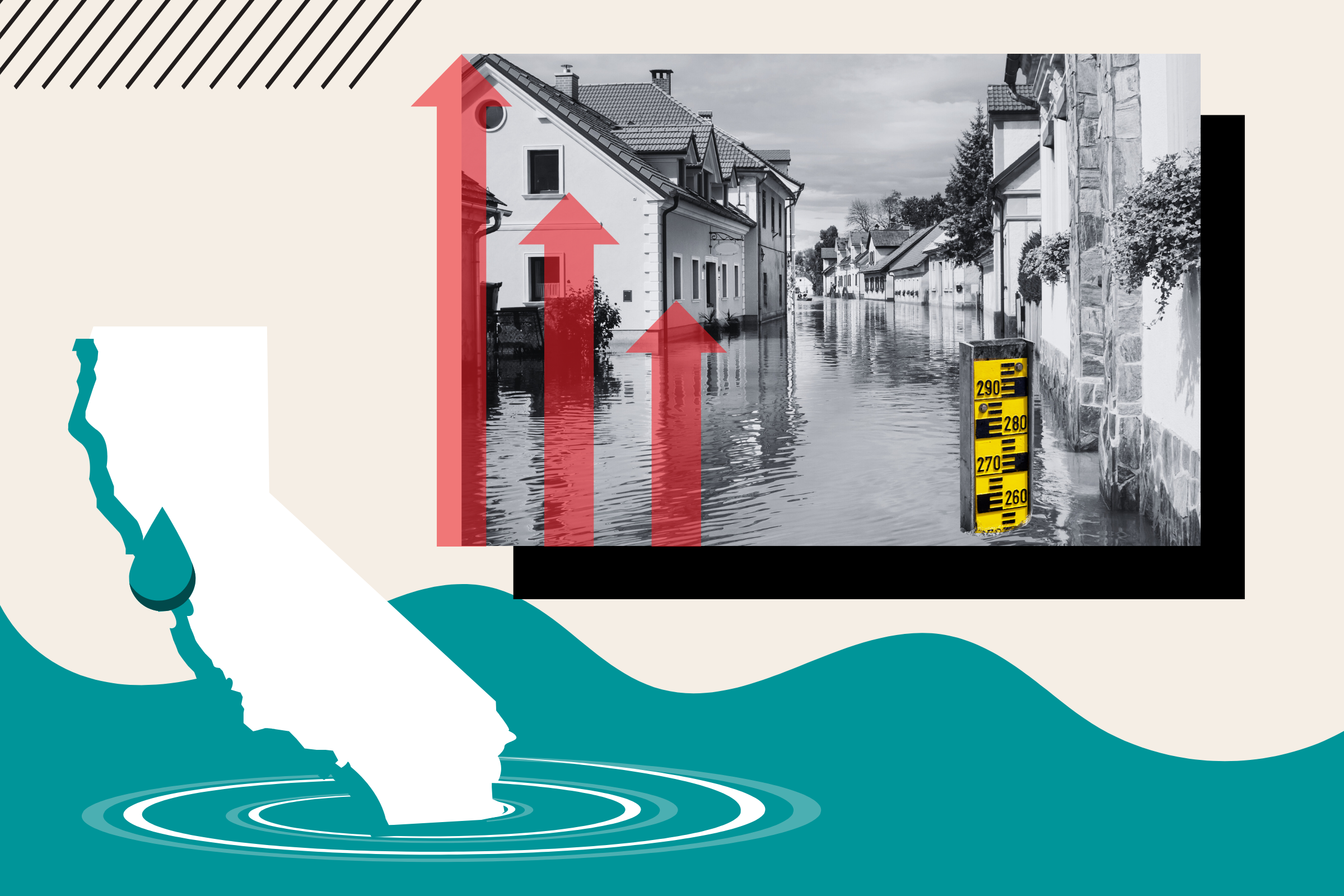Tampa, Florida affected more by climate change than any other U.S. city --analysis
Submitted by mike kraft on
Submitted by mike kraft on
Submitted by mike kraft on
 Glut of climate risk data prompts fear of US home insurance hike | Context Climate risk disclosure data is educating - and dividing - home-owning Americans Context
Glut of climate risk data prompts fear of US home insurance hike | Context Climate risk disclosure data is educating - and dividing - home-owning Americans Context ...
As climate risk data becomes ever more prevalent, U.S. homeowners now have new know-how to future-proof their main asset but may also end up paying more to guard against the possible fallout of a fast-changing climate.
Submitted by mike kraft on
10 U.S. states least-prepared for climate change and extreme weather (cnbc.com)
“There’s really no place in the country that doesn’t have risk,” said Jeremy Porter, head of climate implications for First Street Foundation, a nonprofit, nonpartisan research organization. “As you start to look at the multiple hazards, wildfire, wind, flood, extreme heat, then you start to understand that these hazards touch all parts of the country.”
Some states are more vulnerable than others. And even some of those that aren’t are not doing all they can to mitigate the risks....
Some states are well-equipped to deal with the rising risks. But these ten states have work to do.
...
Submitted by mike kraft on
 Where seas are rising at alarming speed Seas in the Southern United States have risen dramatically since 2010. The extra water has upended life — flooding homes, choking septic systems and deluging roads. Washington Post
Where seas are rising at alarming speed Seas in the Southern United States have risen dramatically since 2010. The extra water has upended life — flooding homes, choking septic systems and deluging roads. Washington Post One of the most rapid sea level surges on Earth is besieging the American South, forcing a reckoning for coastal communities across eight U.S. states, a Washington Post analysis has found.
Submitted by mike kraft on
Submitted by mike kraft on
 New York map shows where state will become underwater from sea level rise New York City and swaths of Long Island are vulnerable to being consumed by the rising ocean as sea ice melts in the coming century. Newsweek
New York map shows where state will become underwater from sea level rise New York City and swaths of Long Island are vulnerable to being consumed by the rising ocean as sea ice melts in the coming century. Newsweek Parts of Manhattan, Long Beach and Coney Island are at risk of being consumed by water as sea levels rise due to the effects of climate change in the coming century, modeling suggests.
Submitted by mike kraft on
Texas Map Shows Where State Will Become Underwater From Sea Level Rise
Coastal areas along Texas's stretch of the Gulf of Mexico could be vulnerable to being consumed by water as sea levels rise due to the effects of climate change, modeling suggests.
By the year 2100, the Intergovernmental Panel on Climate Change (IPCC) estimates there will be between 43 and 84 centimeters (1.4-2.8 feet) of sea level rise, but that an increase of 2 meters (6.6 feet) "cannot be ruled out."
...
Submitted by mike kraft on
 California map shows where state will become underwater from sea level rise Sea level rises could cause areas along California's seaboard to be flooded or entirely consumed by water, modeling suggests. Newsweek
California map shows where state will become underwater from sea level rise Sea level rises could cause areas along California's seaboard to be flooded or entirely consumed by water, modeling suggests. Newsweek Areas of populous cities along California's stretch of the Pacific Ocean could be flooded or entirely consumed by water if, due to the effects of climate change, sea levels rise as predicted, modeling suggests.
Submitted by mike kraft on
 Study: From NYC to DC and beyond, cities on the East Coast are sinking Major cities on the U.S. Atlantic coast are sinking, in some cases as much as 5 millimeters per year—a decline at the ocean's edge that well outpaces global sea level rise, confirms new research from ... Phys.org
Study: From NYC to DC and beyond, cities on the East Coast are sinking Major cities on the U.S. Atlantic coast are sinking, in some cases as much as 5 millimeters per year—a decline at the ocean's edge that well outpaces global sea level rise, confirms new research from ... Phys.org Major cities on the U.S. Atlantic coast are sinking, in some cases as much as 5 millimeters per year—a decline at the ocean's edge that well outpaces global sea level rise, confirms new research from Virginia Tech and the U.S. Geological Survey.
Submitted by mike kraft on
 UN chief gives interview from melting Antarctica on eve of global climate summit On the eve of international climate talks, U.N. Secretary-General Antonio Guterres visited globally-important Antarctica, where ice that’s been frozen for millions of years is melting due to human-caused climate change, sending the message that “we absolutely need to act immediately.” AP News
UN chief gives interview from melting Antarctica on eve of global climate summit On the eve of international climate talks, U.N. Secretary-General Antonio Guterres visited globally-important Antarctica, where ice that’s been frozen for millions of years is melting due to human-caused climate change, sending the message that “we absolutely need to act immediately.” AP News ...